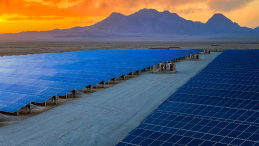The region comprised of the Middle East and North Africa, or MENA, is characterised by its unique ecosystems and vast deserts. In recent times, MENA has been subject to a rapid expansion in renewable energy projects, particularly those pertaining to solar, wind energy, and green hydrogen production. The key drivers for this expansion include: a) The reduction of Greenhouse Gases (GHGs) resulting from conventional fossil fuels, b) The diversification of the region's energy mix and, c) A willingness to play a key role in the European Green Deal via the export of renewable energy to EU countries.
Despite these motivations, however, this expansion cannot be possible without facing both the significant opportunities and challenges posed to biodiversity management. It is therefore crucial that the roles held by the key sector stakeholders for sustainable biodiversity management are investigated.





